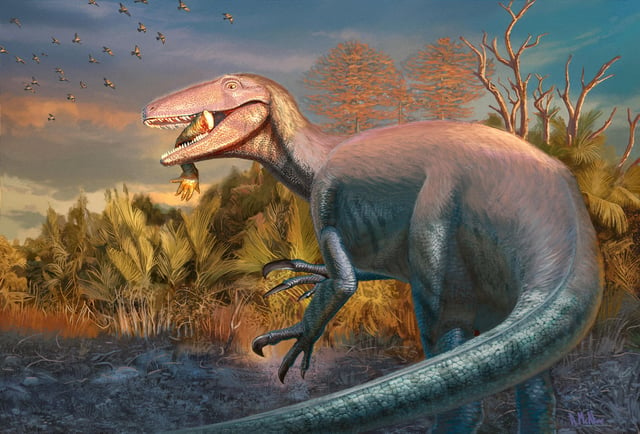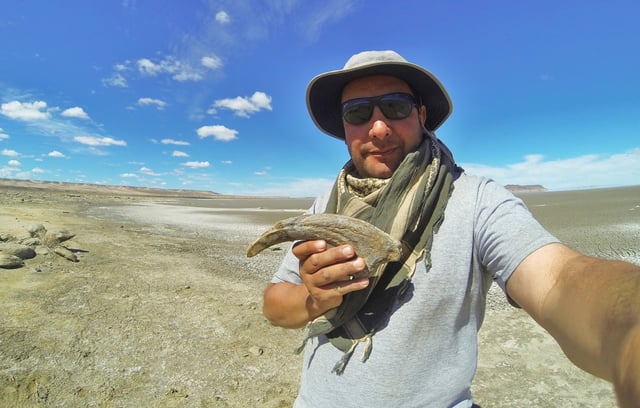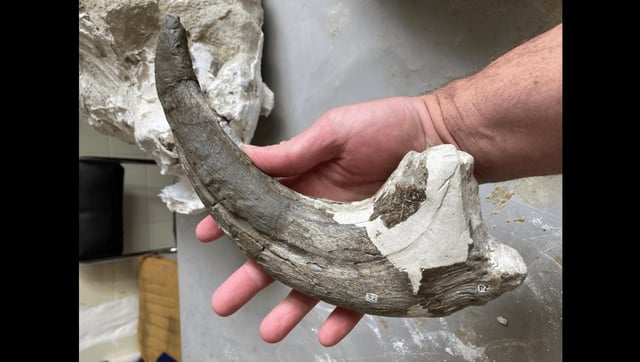Overview
- Researchers described Joaquinraptor casali in Nature Communications on September 23 based on remains from Patagonia, Argentina.
- The 2019 find at the Río Chico headwaters preserves much of the skull, limbs, vertebrae and ribs, making it one of the most complete megaraptoran fossils yet.
- A crocodyliform humerus was found lodged between the lower jaws, offering dietary clues while the death circumstances remain uncertain, and the animal is identified as the apex predator of its coastal ecosystem.
- Estimates indicate a length of about 7 meters, a mass near one metric ton, and an age around 19 years at death.
- The fossil dates to roughly 66–67 million years ago, strengthening evidence that megaraptorans persisted to the end of the Cretaceous, and the species name honors lead author Lucio Ibiricu’s son, Joaquin.


